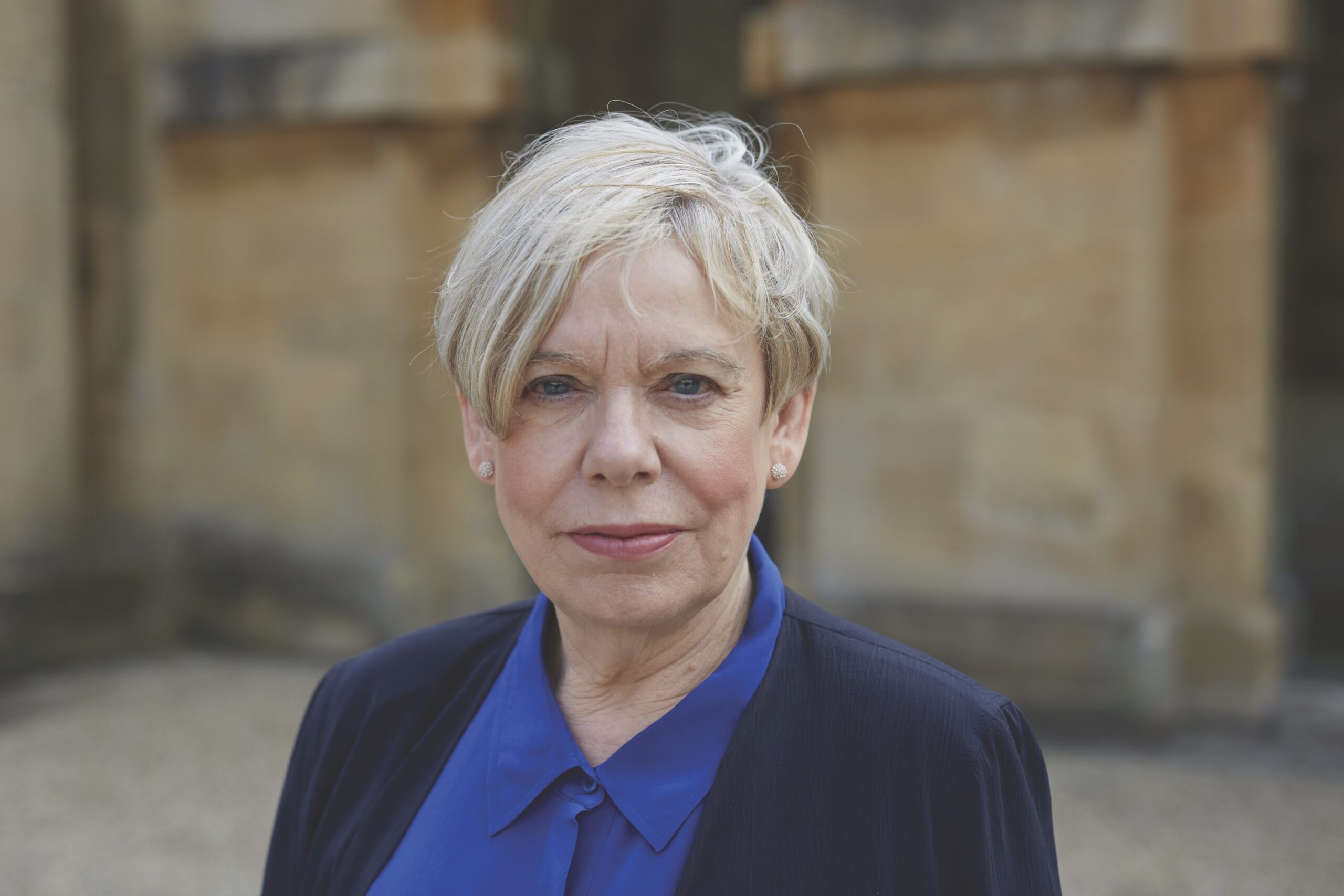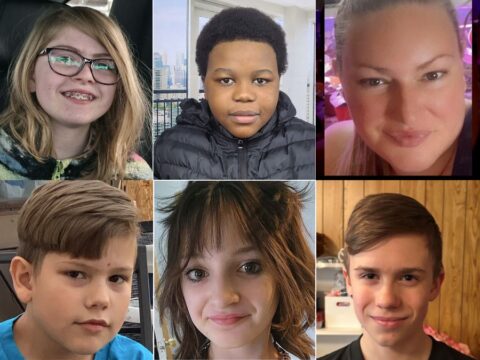British author Karen Armstrong spoke to John Suk in Toronto about the history of religion and violence.
John Suk: In your new book Fields of Blood, you take pains to explain that religion isn’t what it used to be. What do you mean?
You may unsubscribe from any of our newsletters at any time.
Karen Armstrong: Luther’s view that religion is something the individual appropriates, or the Enlightenment idea that it is a private quest, is new. The separation of religion and politics in the 18th century was an absolute innovation. Before that, people didn’t have a sort of special day where they just did religion. Religion was inseparable from state building, politics and, of course, warfare. It suffused all their activities. It still does, in much of the world.
JS: So is religion the source of all wars, as we often hear?
KA: No. The roots of violence go much deeper. With the end of hunter-gatherer cultures and the invention of the agrarian state, 90 percent of the population had to be coerced to give up their agricultural surplus and live at subsistence level. No population would voluntarily accept that.
Plunder is also an essential income source for the agrarian state. The acquisition of booty is part of the military way of life, the way the soldier earns his living — it keeps him from having to become a serf.
Think of the Bible’s story of Cain and Abel. Cain was the first farmer, and he built the first city, and he was the first murderer. That’s a very succinct summary of the Bible’s view of the agrarian economy and violence.
Look, I’m not saying religion isn’t implicated. Every time there’s an atrocity done in the name of religion, whether that’s the assassination of [Israeli Prime Minister Yitzhak] Rabin or the Ku Klux Klan riding or even the Oklahoma bombing, religion is implicated. But we never go to war for a single reason. Military historians say there are always interrelated territorial, geographical, social, political and above all economic reasons for warfare. And similarly, terrorism is never committed for a single motive like religion, though terrorism is always inescapably political.
JS: What other factors drive terrorism?
KA: So beyond religion, there’s a sense of rootlessness and aimlessness, a lack of meaning that is dangerous for society. I think this is part of the reason why, throughout history, young men have wanted to go to war. They get a sort of excitement, a high.
A British jihadist recently interviewed by the BBC hardly mentioned Islam as a motivation. No, he said, “Now here we are free.” He went on to say fighting is like being in a video game. And another said that only when he felt the first bombs falling did he think, “Man, this is for real.” Two British jihadists who recently left for Syria had ordered Islam for Dummies from Amazon.
The sense of rootlessness and aimlessness is especially raw in the Muslim world. Islam was a great world power reduced overnight to a dependent bloc. I cite a survey of young men who went from Saudi Arabia to fight in the Afghan jihad against the Soviets, and later to fight with al-Qaeda or in Bosnia. These jihadists did not go primarily because they hated the Americans, or even Israel, but because they wanted to help their brothers and sisters. But then the Iraq war unleashed a whole lot of new images of Muslim degradation and suffering.
We in the West were not only implicated this time but directly responsible. Add to that the endless sore of Palestine. The jihadists were greatly shamed that their own governments weren’t doing more. They felt humiliated. That’s a corrosive and dangerous thing to have in the world; it creates great alienation.
JS: How has war changed in the last century?
KA: The casualty figures among civilians have dramatically increased in the last hundred years. During the First World War, from 1914 to 1918, only five percent of the people who died were civilians. That shot up to 66.5 percent during World War II with the deliberate targeting of civilian areas by the Allies.
The state is by far the biggest killer of civilians compared to any other group. By now, civilians comprise 90 percent of casualties. I was having lunch at the British museum with Prince Hassan of Jordan some months ago, and I said it’s a disgrace that there’s been no outcry about these civilian casualties, and he just leaned across the table and grasped my hand. He didn’t speak a word, but tears filled his eyes.
JS: In reading your book, I was taken by the character of Ashoka. Who was he?
KA: He epitomizes this dilemma of civilization. Ashoka was a violent man who came to the Indian throne [around 268 BC] after killing two of his brothers. He had a reputation for cruelty. But eight years into his reign, he accompanied the army on a fateful expedition to Kalinga in modern Odisha and there had a conversion experience. He was absolutely appalled by the bloodshed he saw with his own eyes, the hundreds of thousands of prisoners of war carted away from family and homes forever, for forced labour. After that, he put up these extraordinary inscriptions that called for a more compassionate form of living. He explained his distress and pleaded for kings going to war to keep the violence to a minimum.
Ashoka also told everyone to honour all teachers, even those deemed heretical, because everybody’s opinion must be listened to. He preached kindness to animals. And yet, he could never disband his army. Had he done so, he knew all too well others would fight each other to succeed him. And the mayhem would have been appalling.
JS: What about pacifism today? Is it an option?
KA: We need pacifists to remind us of our yearning for peace and our dream of a world where people are treated with justice and equity. But the quandary is that military historians tell us that without disciplined armies, we would probably degenerate into warring wards. Even the Buddha didn’t believe he could get rid of all violence in society. As far as we can tell, he was also a complete realist. All he could do was offer an alternative.
It’s depressing. Even in America, they have these horrifying outbreaks of violence. School shootings, for example. And beyond that, the warring hordes of ISIS.
JS: The great prophets of non-violence have passed away. Are there current voices out there that we should be listening to?
KA: never thought I’d hear myself say these words, but I really like what Pope Francis is doing at the moment, especially after his two predecessors. He’s a master of the gesture. He went to Yad Vashem, the Holocaust memorial, and laid his hand on it. Then he went to the wall dividing the Israelis and the Palestinians, and in the same way he laid his hand on it, much to the disconcertment of his entourage. If only we had people, one or two people, of the calibre of Gandhi or King in the Middle East.
JS: But that’s a hopeful statement: one person can make a difference.
KS: Yes, that’s what we have to keep telling ourselves. Each one of us, in whatever walk of life we happen to be in, can work to increase world understanding, recognize how little we know about other places and traditions, and open our hearts to the suffering that is outside our privileged enclave. The world could be transformed. I do believe that. It just takes one person, and each of us can be that person.
JS: A last word about compassion?
KA: Compassion is not just a luxury or a nice thing to do. I was recently asked what a compassionate city should be like, and I said an uncomfortable city. We should be profoundly uncomfortable when we look at our world and see the pain of the world. As the Prophet Muhammad said, not one of you can be a believer if you can sleep knowing that somebody is hungry.
This interview has been condensed and edited.
***
This story first appeared in The United Church Observer’s March 2015 issue with the title “The roots of violence go much deeper than religion.”














